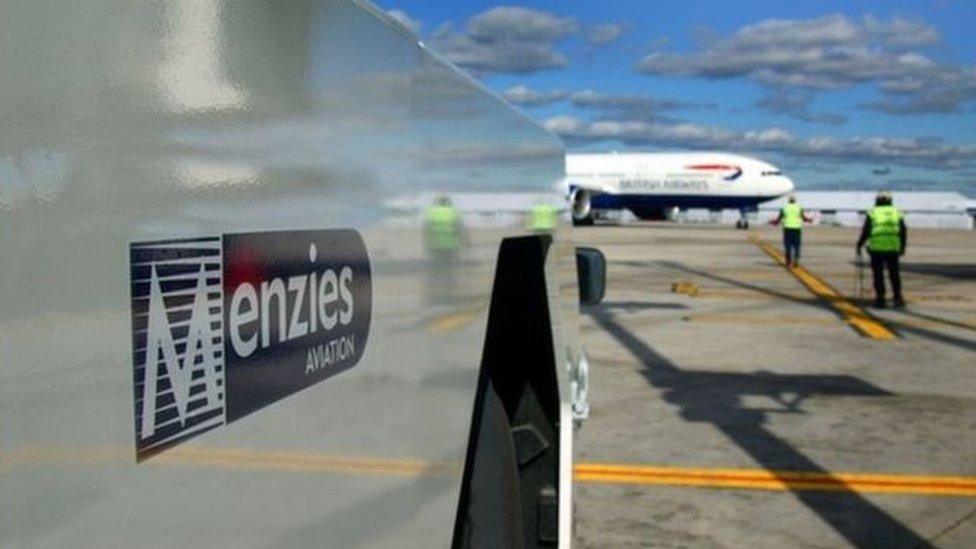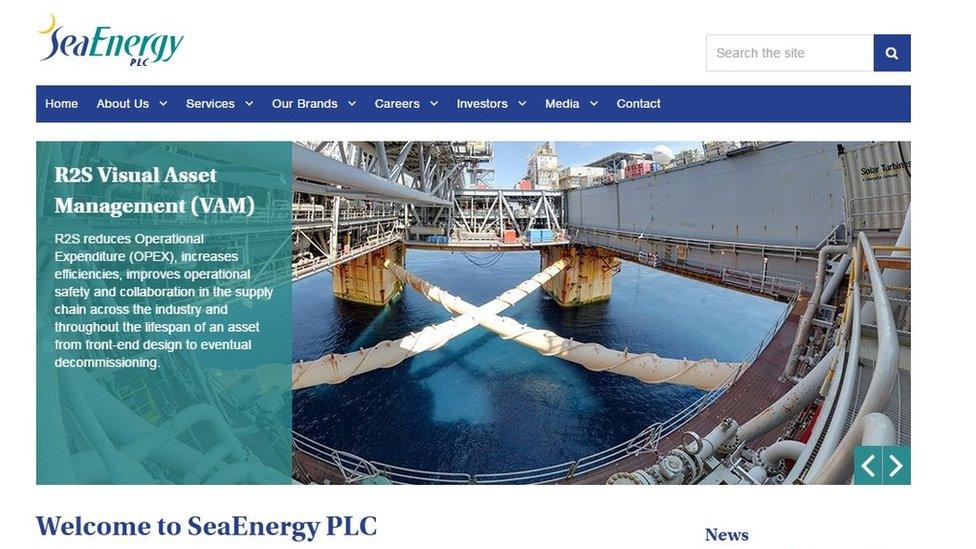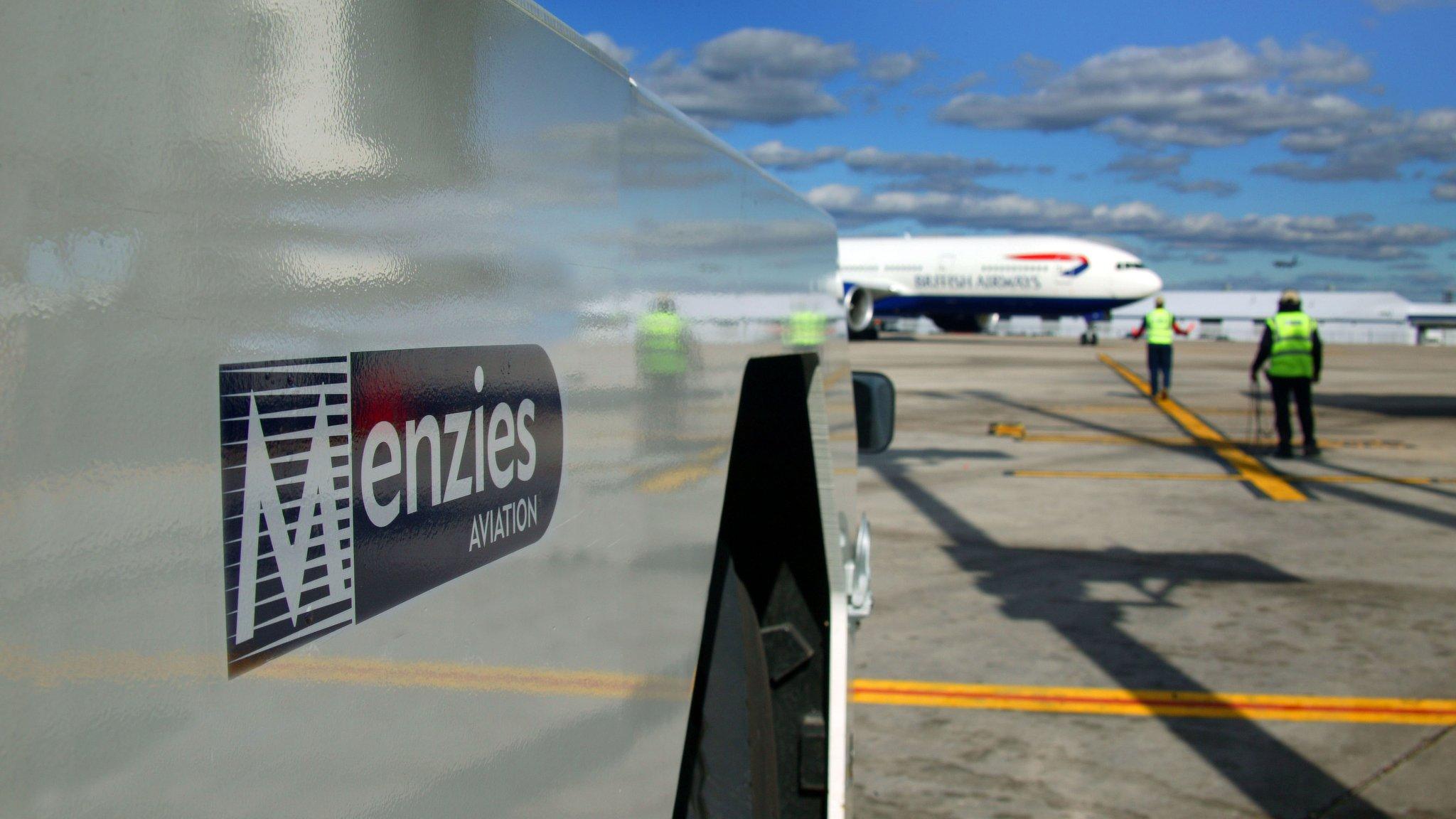Loose change: transforming Scottish firms
- Published

The one constant in business is change. Markets and technology shift. So do skills and tastes.
Sticking to your business plan is all very well, so long as you're flexible about it.
But what about businesses that completely overhaul what they do?
Three such firms, based in Scotland, have updated the stock exchange in the past few days, and offer some interesting contrasts, if not lessons - from strategic change at John Menzies, to complete reinvention of Cupid online dating, to crisis management at storm-tossed Sea Energy.
Paper trails
John Menzies used to be a ubiquitous newsagent presence in Scottish shopping streets, railway stations, bus terminals and airports.
It began in that line of retail in 1833 in Edinburgh. The founder was a 25-year old entrepreneur (such a word may have been treated as sedition at the time, and whoever coined the word "wantrepreneur", which only recently crossed my path, ought to be punished severely for crimes against language).
Menzies not only sold newspapers and magazines but also distributed them - more than 26 million per day - giving it a powerful role in the print industry.
In the 1980s and 1990s, it developed its own computer system for the logistics of newspaper distribution.
It bought the Early Learning Centres retail chain, and distributors of books and music as well as of games software in its early days. Using the company's logistics knowledge, it began to acquire businesses in airport ground handling.
And all this was while one John Menzies, great grandson of the founder, remained chairman. He stepped down 19 years ago.
Baggage carousel
As we can now see, the company was highly exposed to the arrival of the internet.
With a foresight lacking in the management of the newspapers it distributed, Menzies sold its extensive newsagent chain to WH Smith in 1998, for £68m.
The company, still headquartered in Edinburgh, remains a big player in newspaper and magazine distribution, but it is adjusting to the falling volume of business by growing elsewhere.
In the past couple of years, it has sought to replace that decline in business with growth in online shopping distribution.
In a similar pattern to its 1980s and 1990s growth, it has bought three small Scottish delivery firms with rural and island footprints - AJG Parcels, Oban Express and Thistle Couriers in Aberdeen. That makes it an important employer and presence for people and businesses in the north and west.
Menzies has also put ever more emphasis into airport ground handling, of passengers, baggage and cargo, with a far-flung presence.
In only 21 years, it has built up a business in 146 airports across 31 countries, with 500 airline clients and more than 20,000 employees.
The most recent acquisitions were in Colombia and Australia - of firms where it believes it can extract value by its know-how and scale.
With £2bn turnover, 37% of this 183-year old Edinburgh newsagent is now in airports.
Stupid Cupid
Castle Street Investments is hardly a household name. When it was called Cupid, it got a lot more attention.
That was when it was growing aggressively in the online dating market, floating on the London market as Easydate in 2010 and changing its name to Cupid the following year.
It was slightly too aggressive, as BBC investigations found out. Though the details were disputed, it seems their business partners in Ukraine were misleading paying customers about their romantic prospects in order to inflate income.

Cupid, headquartered in Edinburgh's New Town, had shot its arrow into its own foot. It sold off 'casual dating' operations (the racier adult stuff) which turned out to be by far the most profitable business.
And as the online dating market was upended by Tinder and the like, it sold off the rest not long after, and has since been cleaning up after that legacy.
So from £53m turnover and £7m profit in 2012, it lost half its turnover the next year, and hit a pre-tax loss of nearly £1m. It didn't trade for two years, and in January this year, it fully re-emerged on to the stock exchange.
Cloudy outlook
The shareholders, including the founder, Bill Dobbie, had decided to start again, building on expertise the team already had.
And as they knew a thing or two about technology (Dobbie was also in at the start of iomart in Glasgow), they decided to get into consolidation of niche cloud computing.
So far this year, the company has bought two such companies, Selection and C4L, for which it raised £30m and secured a £7m credit facility with Royal Bank of Scotland.
As in online dating, Castle Street is up against some big players, in this case including Amazon and Google, and the cloud market faces disruptive innovation.
But while hanging on to their hard-won stock exchange listing, they are showing that there can be new beginnings after true love lets you down.
Stormy Sea
What then of Sea Energy? It wasn't forced to give up on oil exploration, or its previous name, Ramco.
But the Aberdeen-based firm chose to do so in 2009, to exploit its offshore knowledge for what seemed a promising renewable energy future.
It hasn't worked too well at all. Various attempts at finding a niche in the market have got it not very far.

It sought to play in the very big league of developing offshore wind arrays. But within a year of starting, it had put that division on the market, having found lenders weren't willing to lend.
It tried to develop into offshore turbine supply vessels, licensing clever technology that allows workers to get on to the platforms in quite lively seas.
Then, it parted company after 34 years with its founder and executive chairman, Steve Remp. He still owns 7%, but left to pursue an offshore drilling project mired in dispute with the Montenegro government.
Downward lurch
Sea Energy has since returned its focus to oil and gas. It offers software for visualisation of offshore energy facilities, claiming that being able to "see" your assets offshore and underwater should help you run them more efficiently.
But rather than focus on winning orders, management have other things on their minds. Last week, they set alarm bells ringing about a lack of finance.
The downturn in oil prices hit hard at the end of 2014. Things were beginning to firm up towards the end of last year, but the further downward lurch in the oil price meant clients slammed the brakes on spending even more firmly.
The company owns a fifth of Dublin-based Lansdowne Oil, which is struggling to find finance to develop a field south of Ireland - even considering a highly unusual alliance with a rig operator and well service manager. Such companies are desperate for orders.
Sea Energy secured funding to tide it over this rough patch. That was last November. Already, it looks insufficient.
The company has given up on its ship management hopes, and the visualisation software is up for sale. If a buyer can't be found, more funding will be needed by May.
The share price has fallen from 40p two years ago, to less than 2p now.
It will take more than clever technology, on these storm-tossed markets, to make the leap from Sea Energy's corporate deck to a firmer footing.
- Published8 March 2016
